Can optimism and curiosity win the battle with Ai

Plunge into the world of tech-powered creativity with David Droga, CEO at Accenture Song, as he shares his insights on innovation, the impact of AI, and why creativity is worth fighting for.
In a world where technology is advancing at an astonishing pace, the boundaries of creativity are constantly expanding. Recently, at SXSW Sydney, we had the privilege of hearing David Droga, CEO at Accenture Song, talk about the future of tech-powered creativity moderated by Sunita Gloster AM, Non-Executive Director, the discussion was nothing short of enlightening.
David Droga, known for his creative prowess and innovative thinking, wasted no time in diving straight into the heart of the matter. Here are some of the key takeaways from conversation with this creative visionary.
Tech Amplifies Creativity
Droga began by emphasising that creativity knows no bounds and can fit into any mould you provide. He spoke about how technology is a powerful amplifier of creativity, magnifying its impact in ways we couldn’t have imagined. “Being creative and using technology, it’s just going to amplify. Creativity fits in any shape you have,” Droga quipped.
“Creativity is innovation. It’s the same. Technology needs creativity to be more relatable and real.”
He also stressed the importance of embracing change, stating, “Not all creativity needs to survive. There are things that we bucket as mediocre that should disappear. Change is good, and it’s necessary to create.”
Creativity Equals Innovation
Droga drew a clear parallel between creativity and innovation, highlighting that they are essentially two sides of the same coin. “Creativity is innovation. It’s the same,” he stated. He emphasised that creative individuals possess a unique ability to ask different questions and perceive the world through a distinct lens. “Creative people ask different questions. We look at things to add value,” Droga noted.
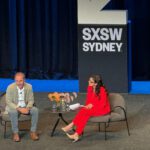
Technology and Creativity: A Symbiotic Relationship
In today’s rapidly evolving landscape, Droga underscored the importance of not romanticising the creative process. He explained that with the tools and technology available today, high-quality work can be produced at a fast pace. “You can do things at high quality at a fast pace now with the tools we have,” Droga asserted.
However, he acknowledged the tension that arises when rewiring teams at such breakneck speeds, cautioning that the most significant damage in marketing often stems from self-inflicted wounds. “The most damage in marketing is self-damage,” Droga mused.
The Human Touch in Creativity
While technology plays a vital role in enhancing creativity, Droga firmly believed that breakthroughs and leaps come from humans. He highlighted the importance of retaining the human element in the creative process, saying, “Technology needs creativity to be more relatable and real.”
Droga used the example of AI, stating, “Gen AI is not going to write a Barbie movie. It’s complex, but ‘Fast and Furious,’ you can.” He encouraged everyone not to ignore technology just because they may not fully understand it.
The Future of AI Script Writing
The conversation took an intriguing turn when Droga questioned whether AI script writing should be regulated. He firmly believed that mandating such regulation might not be the right approach. “Tech is irrepressible,” he asserted. Instead, he encouraged us to focus on how to coexist with technology and thrive alongside it.
“Creative people are about adding, what can I add to the situation, while all CEOs are about how they can extract from the client, team or situation.”
Droga’s perspective shed light on the divide between creative thinkers and business leaders. He remarked, “Creative people are about adding, what can I add to the situation, while all CEOs are about how they can extract from the client, team or situation.”
Creativity: The Driving Force
One of Droga’s defining characteristics is his unwavering passion for creativity. He spoke of a scenario where he was given a million dollars with one simple instruction: “Make something fucking cool.” He embraced the challenge with gusto, highlighting that great ideas don’t necessarily cost more than mediocre ones. “Strive to think that you can have prototypes instead of decks now. We can produce so much more and faster,” Droga enthused.
Keeping Clients Relevant
When it comes to the world of advertising and marketing, Droga emphasised the need to keep clients relevant in an ever-evolving landscape. He spoke of the importance of understanding and researching to find new possibilities and opportunities, which he believed was at the core of creativity. “Finding new possibilities and opportunity, that’s creativity,” Droga remarked.
The Creative Potential
In a world rife with anxiety, Droga expressed his optimism about the potential of creatives. He believed that the best thing one can do is to invest in the future of their staff. “The best thing you can do is give your staff the future,” he declared.
“The best thing you can do is give your staff the future.”
Droga’s outlook on life is characterised by curiosity and a drive to make a difference. He urged everyone to embrace opportunities by being curious and avoiding the trap of self-deception. “I look at everything as an opportunity. By being curious. Not buying my own bullshit. Do something right,” he advised.
The Steve Jobs Approach
Droga channelled the spirit of Steve Jobs, calling for a bold and fearless attitude in the creative realm. He declared, “Steve Jobs’ call to the arms, to the crazy one… That should be the attitude for creatives every day.”
He also touched upon the notion of being replaceable by technology, stating, “I’m okay to be replaced by tech.” However, he emphasised the importance of caring more about outcomes and having the superpower to simplify complex concepts. “My superpower? I can dumb down everything,” he quipped.
Australia’s Unique Position
Droga’s conversation took a patriotic turn as he discussed what makes Australia unique. He likened the country to a youthful, cocky and competitive 15-year-old with global influence despite its small population. He spoke of Australians’ ability to travel well and make an impact on the global stage.
“It’s going to be a battle, and creativity is worth fighting for.”
The Battle for Creativity
In closing, Droga underscored that every industry needs creativity, and it’s a battle worth fighting for. He stressed the importance of looking to the future, building innovative teams and staying laser-focused on projects.
As Sunita wrapped up the conversation with David Droga, it became clear that his love for making and solving things, his thirst for interesting conversations, and his desire for better leadership in Australia (becoming next PM) were the driving forces behind his enduring creative journey. In a world where the only constant is change, Droga’s unwavering commitment to creativity serves as an inspiration to us all.
So, as we navigate the ever-evolving landscape of tech-powered creativity, let us remember the words of David Droga: “It’s going to be a battle, and creativity is worth fighting for.”




Related posts

How Entertainment Brands are winning hearts and minds
5 March, 2024

2023 packed a punch
17 January, 2024

The power of relationships with Dom Pym at Pause Awards Night
19 December, 2023
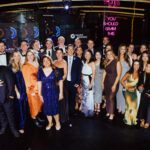
Six years of celebrating the Australian most ambitious innovators
5 December, 2023

M&A green shoots & scandal central
10 November, 2023

Announcing the 63 ambitious finalists, 3 winners and Pause Awards Night
30 October, 2023

Looking at 100 years from now in Solar, EVs and MedTech
20 October, 2023

What does the Australia’s VC landscape look like in 2050
19 October, 2023
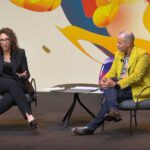
Do we want to live in a Black Mirror world?
17 October, 2023
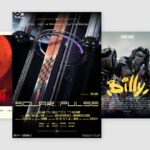
Four new emerging directors envision sustainable future beyond 2050
6 October, 2023

Visible Founders puts a spotlight on migrant entrepreneurs
28 September, 2023

Always be closing & IPO, no?
24 September, 2023

Strong commitment needed to run tech events in Australia revealed at GEC23
24 September, 2023

iPhone 15 event: everything about Apple’s new product line
14 September, 2023

Discover the colourful world of oral hygiene with Dsmile’s new range
13 September, 2023

How to build a company culture in dynamic market
8 September, 2023

The valuable startup lessons hidden in the film Oppenheimer
7 September, 2023

Meet the new addition to the Judging Board ‘23
4 September, 2023

Advice on Design Thinking for stellar product development
1 September, 2023

How Pause Awards can put your brand on the map
30 August, 2023

Seize the moment: New Extended Entry Deadline
30 August, 2023

I got 99 problems
26 August, 2023

Is AI the new frontier of creativity and business
25 August, 2023

Tech legends unite to guide growth and foster innovation
22 August, 2023

The new faces of Pause Awards in business and the product officers
21 August, 2023

Don’t miss out on the last chance to join champions
21 August, 2023

Experience is a new frontier for brands
18 August, 2023

How to grow an idea into a great product
11 August, 2023

Good storytelling and trust will fuel startup and brand growth
4 August, 2023

Twitter to X: a rebrand to challenge tech giants and empower users
4 August, 2023

Discover the latest tech predictions of 2023
1 August, 2023

Elevate your business with Stephen Hunt’s success secrets
31 July, 2023

Lean into digital marketing trends now and in 2024
28 July, 2023

The new faces of Pause Awards from agency and media innovation
25 July, 2023

Hit it, DJ! and other local newsings
24 July, 2023

Female-led ethical fintech Verve raises $3M for Verve Money
21 July, 2023

How to better tune into your success journey
21 July, 2023

Pause Fest’s BREAK–THROUGH SESSIONS will keep you scaling
12 July, 2023

How to choose the right awards for your business
5 July, 2023

The new faces of Pause Awards in strategy and leadership
4 July, 2023

We’re building the community for the most ambitious people
27 June, 2023

It was worth waiting for these unique features
26 June, 2023

Mapping the future of fit and function
23 June, 2023
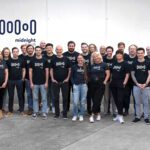
Midnight Health secures $24 million funding boost
21 June, 2023

Championing breakthroughs in today’s business world
21 June, 2023

OpenAI’s Sam Altman says hai
19 June, 2023

Top 5 compelling reasons why you should enter
18 June, 2023

Pause Awards vs Webby’s, Cannes Lions and Effies
18 June, 2023

The new faces of Pause Awards in startup, product and experience
15 June, 2023

A tour of 11 new categories
12 June, 2023

Inside out of Pause Awards
5 June, 2023

Aim for the Diamond: Understanding the Different Categories
1 June, 2023

The new faces of Pause Awards in strategy, growth and innovation
30 May, 2023

Where business recognition gets a paradigm shift
24 May, 2023

Industry leaders predict a transformative year ahead
17 May, 2023

Pause Awards grows to $412 Billion ecosystem
17 May, 2023

Shaking it up with new Investable Score™
17 May, 2023

Tap into your inner powerhouse
5 May, 2023

Life in the fast (tech) lane
24 April, 2023

evee rides the electric wave
18 April, 2023

Big win for the female-led business Circle In, lands $2 Million
14 April, 2023

Designing global empires:
How local brands can conquer the world
10 April, 2023

A passionate pursuit for Healthcare reinvention
4 April, 2023

The game-changing sessions at SXSW Sydney
30 March, 2023

Top AI tools you need to try now
29 March, 2023

A journey to revolutionising healthy school lunches
28 March, 2023

Panic! at the SVB & metrics that matter
16 March, 2023
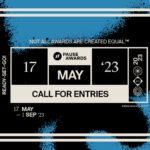
Call for Entries
opens on 17 May ‘23
1 March, 2023

Startup funding in decline, but early-stage hits peak in Aus
10 February, 2023

Music for wellbeing:
The healing power of sound
20 January, 2023

Deep dive with ChatGPT about Aussie tech ecosystem
17 January, 2023

How it started; How it’s going 2022
17 December, 2022

Learning from mistakes and how to tackle the upcoming headwind
14 December, 2022

Claiming your PauseNFT trophy
13 December, 2022

Women and purpose led businesses take the most wins at Pause Awards ‘22
6 December, 2022

Professor Fiona Wood – The pioneer of ‘Spray-on-Skin’ technique, ReCell.
6 December, 2022

Rise and Demise
28 November, 2022

Let’s have breakfast with champions?
15 November, 2022

82 Bold Finalists Announced for the Pause Awards ‘22
10 November, 2022

Judge Sessions with Lumigo, Tribal DDB and Clipboard Hospitality
24 October, 2022

Judge Sessions with LongView, Fullstack and Art Processors
20 October, 2022

The first look at the new wearable trophy design
13 October, 2022

The Public Voting is open, go get them!
10 October, 2022

Cash to splash & other VC news
2 October, 2022

The Final Deadline Extended to midnight 14 October
30 September, 2022

Judge Sessions with Wavia, SEIKK and MedTech Actuator
26 September, 2022

Pause Awards Wins Australia’s International Good Design Awards for Design Excellence
19 September, 2022

Judge Sessions with Synergy Group, AOK Creative and i4 Connect
16 September, 2022

A word with Birchal’s Co-Founder – Matt Vitale
6 September, 2022

What can Pause Awards bring to your company
30 August, 2022

Google, Synergy Group, Spaces Interactive, Safari and By Jacs judges for Culture categories
24 August, 2022

Loyal VC, Media.Monks, AOK Creative, Storyfolk and Irene Lemon judges for Good categories
15 August, 2022

Fullstack, Lumigo, Netambition, MedTech Actuator and Unhedged judges for Operators categories
10 August, 2022

A word with Heaps Normal’s Head of Brand – Peter Brennan
9 August, 2022

Tribal DDB, We Are Unity, Bullfrog, BeautifulAgile and The Audacious Agency judges for your Excellence
2 August, 2022

Simply Wall Street, IBM, Forestlyn, CFOWorx and Accenture Song are this year Growth Judges
1 August, 2022

Venture snapshot: down but not out
26 July, 2022

Best equity crowdfunding year in Australia – $86m!
22 July, 2022

How to navigate the awards Entry Portal?
14 July, 2022

Startup Genome ecosystem report 2022 review
10 July, 2022

We’re giving a voice to our community with a stylish newsroom design
10 July, 2022

Professor Martin Green
– The father of solar cells
10 July, 2022

Dr John O’Sullivan
– The inventor of modern WiFi
10 July, 2022

14 New award categories under five tracks to highlight the ecosystem success
5 July, 2022

M&A on the rise & the EV SPAC demise
29 June, 2022

Our new vision:
The home for champions
27 June, 2022

Awards LIVE Briefing and Entry Kit
22 June, 2022

The Porsche of awards programmes with community at its heart
21 June, 2022

The Sheet Society
– Success Stories
17 June, 2022

We’re looking for our final few judges – could you be one?
8 June, 2022

Single Use Ain’t Sexy
– Success Stories
1 June, 2022

Afterpay
– Success Stories
24 May, 2022

This is how we celebrate innovation champions
15 December, 2021

The most ambitious and forward-thinking companies in Australia revealed
24 November, 2021

Pause Awards 2021 Finalists Skyrocket
17 November, 2021

Final Deadline is Looming
1 September, 2021

Get to know:
Carolyn Breeze – Judge
24 August, 2021

Get to know:
Will Hayward – Judge
17 August, 2021

Get to know:
Shamila Gopalan – Judge
10 August, 2021

Get to know:
Tom Leyden – Judge
3 August, 2021

Get to know:
Jules Brooke – Judge
26 July, 2021

Get to know:
Jamie Finnegan – Judge
18 July, 2021

Early Entries end This Week
12 July, 2021

Need Help Entering Pause Awards?
6 July, 2021

2021 Award Category Guide
1 July, 2021

How to Enter The Pause Awards in 7 min?
25 June, 2021

Get to know:
Melanie Rayment – Judge
24 June, 2021

Past winners:
where are they now?
24 June, 2021

Pause Awards 2021 opens for entries
9 June, 2021

New categories revealed for Pause Awards 2021
5 June, 2021

Meet the Judging Board 2021
13 May, 2021

The Reign in the North
1 February, 2021

What went into creating Vincent, a hyper-real digital human
21 January, 2020

Dane O’Shanassy on Patagonia’s moral compass and commercial success
6 November, 2019
Pause index

Studio Ninja
Out Of The Garage

Katura Halleday
Fresh Blood

Adventus
Out Of The Garage

Aquarzon
Hammer

Bare Cremation
Defiant Ones, On The Rise

Angela Harbinson
Women In Business

ReSource
Circular Pioneer

Portable
B-Good, Hammer

Kate Pollard
Women In Business
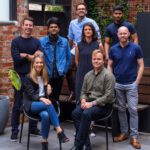
Birchal
Hammer

Slava Kozlovskii
Future Builder



